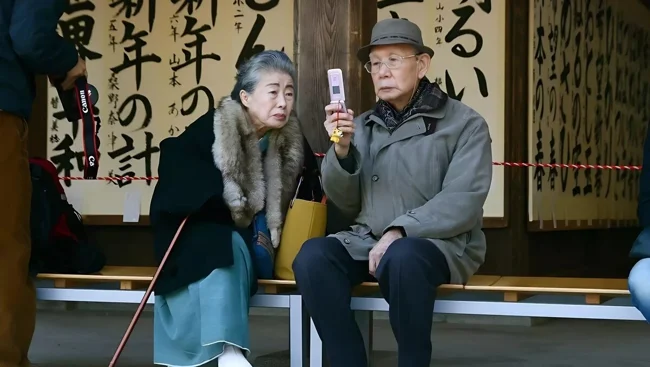A Stunning Incident Happened to Tokyo's Oldest Resident, Shogen Kato, Who Turned 111 in 2010 (2 photos)
On "Older Persons' Day" in Japan, the Adachi Ward administration wanted to honor the old man with a visit, present him with gifts, and wish him a long, long life.
So, they started calling Kato's relatives. They said the grandfather wasn't feeling well, and the granddaughter added, "He's locked himself away and doesn't want to see anyone." And then one official suddenly realized that these stories had been going on for five years. 
Every time they go to visit the old man, they're told he's practically a vegetable, doesn't recognize anyone, sees nothing, and can't seem to eat ramen. Something's wrong. So, they and the police break down the 111-year-old man's door and discover a mummified corpse. It turns out Shogen died 30 years ago, at the age of 79. All this time, the grandfather had been featured in glowing reports from the Japanese Ministry of Health, depicting him as hale, healthy, and cheerful, and moving gracefully. The ministry clerks didn't care that Grandpa was nowhere to be seen. The main thing was that the reports were there – wow, those Japanese people live so long, it's not like they're stealing sushi!
The police, of course, were a little surprised. And they launched an investigation. It turns out that since Grandpa Kato stopped communicating, his family hadn't visited him once. However, they had been regularly receiving their old man's pension, along with supplements for the loss of a breadwinner (his wife had died) and for being a famous centenarian. Over the past six years alone, the Kato family (a daughter and granddaughter) had embezzled 9,450,000 yen (US$117,318) – this included money donated to the supposed centenarian by various associations – teachers, businessmen, and the military. A sweeping investigation was launched into all the centenarians. The revelations were outrageous. It turns out the police had no idea whether 254,354 Japanese people over 100 were still alive—they never checked the information, taking their relatives' word for it. It turned out that some of them died during World War II (!!!), but no records were made of this. One registry claimed that such-and-such a person was still alive. Of course, they never found him. Because otherwise, he would have turned... 186 years old! A bunch of others (77,000 elderly people) were also found—according to documents, they should have been over 120 years old.
Further research revealed that people had gone to work in large cities and disappeared without a trace. They died, perished. But they were listed as alive, and their relatives didn't know where they were and didn't report their deaths. Many were ashamed of not having made a successful career in the big cities and never returned home. People also failed to report their divorces and died alone. They continued to receive pension payments, congratulations, and flowers from the mayor on holidays. Utilities were debited from pension accounts, and no one cared that other people's expenses had long since ceased. Dementia also played a role—more than two million Japanese suffer from it. An investigation revealed fundamental problems with registering deaths: elderly people died without their families notifying them or burying them. They failed to report missing grandparents to the police. 24.4% of men and 9.3% of women over 60 in Japan have no neighbors, friends, or relatives they could rely on. Essentially, the beautiful society of happy Japanese centenarians turned out to be a massive scam, caused by the complete indifference and icy apathy of both the Japanese themselves and government officials.
The court sentenced Tokimi Kato, the granddaughter of a deceased "111-year-old" Japanese man, to two and a half years in prison with four and a half years of probation. She repented and fully repaid all the stolen money. The official number of centenarians in Japan has been sharply reduced – it is currently believed to be just under 100,000.
This story shows that chaos, indifference, theft, and incompetent bureaucracy exist everywhere – even in countries we consider the most sincere, law-abiding, diligent, and honest. 























